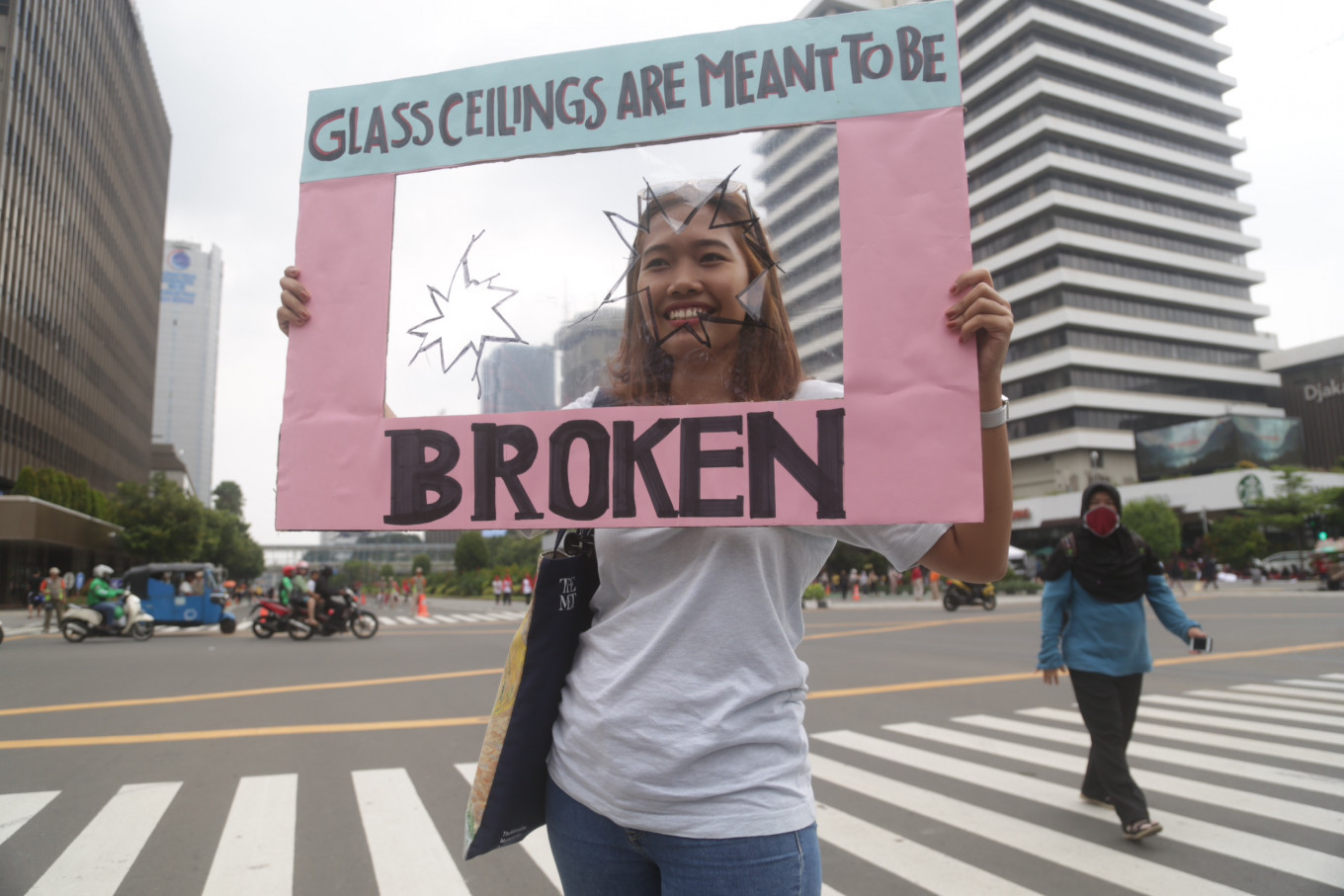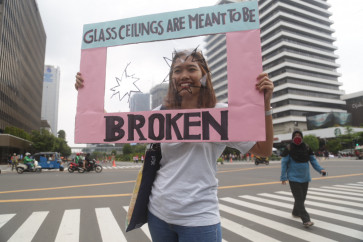Popular Reads
Top Results
Can't find what you're looking for?
View all search resultsPopular Reads
Top Results
Can't find what you're looking for?
View all search resultsIn local politics, gender gulf remains
Change text size
Gift Premium Articles
to Anyone
I
ndonesia has long sought proportional gender representation in politics, but women still make up less than 10 percent of regional leaders, and those who have managed to reach positions of authority continue to face disproportionate obstacles, a recent study has shown.
Cakra Wikara Indonesia (CWI), a gender and sociopolitical research group, studied women’s leadership in five local administrations in Indonesia. They found that female leaders tended to focus more on issues of inclusivity and basic services, such as health and education, than their male counterparts, who often saw these areas as "insignificant", particularly to the interests of their political parties.
The five administrations studied were East Java and its four regencies and cities: Grobogan, Jember, Surabaya and Batu.
Female leaders also tended to push for changes to the culture of state bureaucracy, advocating for increased transparency, discipline and punctuality, CWI deputy chairman Dirga Ardiansa said.
Women in leadership positions who were not members of political parties often faced bigger challenges in the deliberation of policies as a result of gender biases in typically male-dominated regional legislative councils, the study found.
“In terms of policy making, regional legislative councils often want something that has a big political benefit. They tend to see the agenda of female leaders as less popular and therefore give less support to their policy proposals,” Dirga said in a virtual discussion on Tuesday.
“Support from constituents will eventually play a large part in female leadership to help them push for their plans,” Dirga said.


















